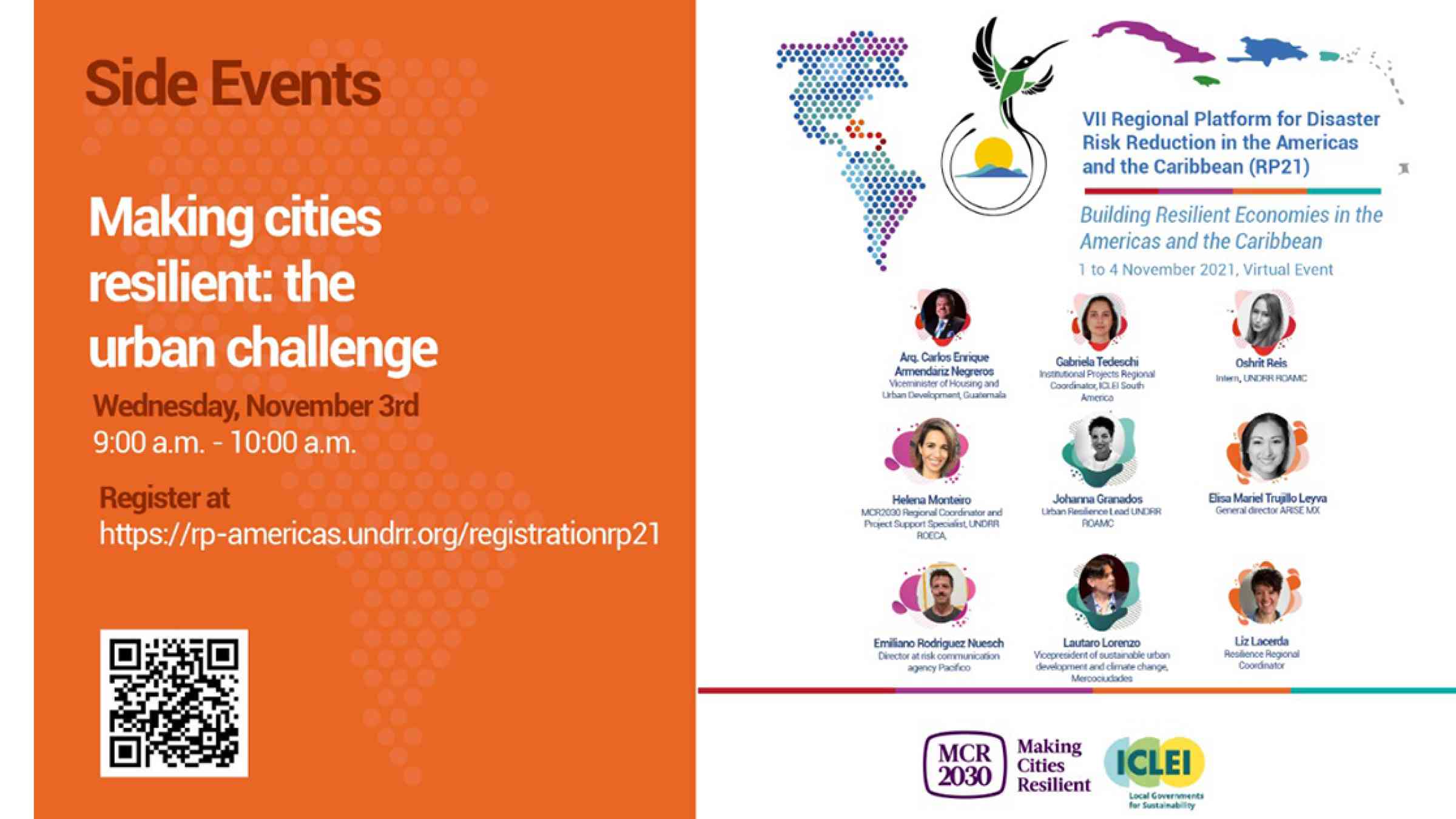MCR2030 in the #RP21

During the 'VII Regional Platform for Disaster Risk Reduction in the Americas and the Caribbean’ that took place between November 1st to 4th, 2021, MCR2030 led the session "Making cities resilient: the urban challenge". The session addressed risk from a comprehensive and systemic approach, emphasizing one the one hand the need to integrate knowledge and action on climate adaptation, disaster risk reduction and resilience-building in urban development; and on the other hand, the need to include local communities in building urban resilience. The winner videos of the 'Voices of the Community' contest were also presented in the session.
Side Event 5. Making Cities Resilient: The Urban Challenge
Organized by:
Making Cities Resilient 2030 (MCR2030)
ICLEI - Local Governments for Sustainability
Regional Office for the Americas and the Caribbean
🔤 Spanish/English
🕘 09:00-10:00 GMT-5
📆 Wednesday, 3 November 2021
🌐 Virtual Event
Side Event 5. Making Cities Resilient: The Urban Challenge
In today's increasingly urban, connected, and globalized societies, reversing the current increasing risk severity and frequency trend requires a more systematic approach to understanding the synergies and dependence relations among disaster risk reduction, climate adaptation, and urban development. A transversal and whole-society approach, whereby all local actors – from communities, local governments, private actors – and policy sectors come together in partnerships to effectively build a more resilient future, will foster sustainable urban development.
Our comprehension of disaster resilience at the local level must reflect the utter complexity of the urban scale. There are no thriving businesses in vulnerable communities, and there can be no co-responsibility without tapping into a community's pride, culture, and sense of belonging. There can be no successful urban resilience policies without local governments actively promoting equity and participation in planning.
In such a complex environment, the Making Cities Resilient 2030 initiative (MCR2030) and key partners showcased inspiring practices across the Americas and the Caribbean at the grassroots level and raised awareness about the role of innovation and communication in achieving more effective risk and climate change education to build more resilient communities. In this session MCR2030 reaffirmed its commitment to leaving no one behind in making more resilient cities.
During the Regional Platform, three other sessions related to local level resilience received support from the MCR2030 team:
Parallel Session 4. Integrating Disaster Displacement into DRR Strategies, Plans and Legal Frameworks, Monday, Nov 2nd.
Parallel Session 6. Local Governments, Environmental Management, Multiple Hazards and Supporting the most-at risk, Wednesday, Nov 3rd.
Learning Lab 4. Cultural Heritage Management & DRR: Introducing the Scorecard’s New Addendum to Make Cities Resilient, Thursday, Nov 4th.